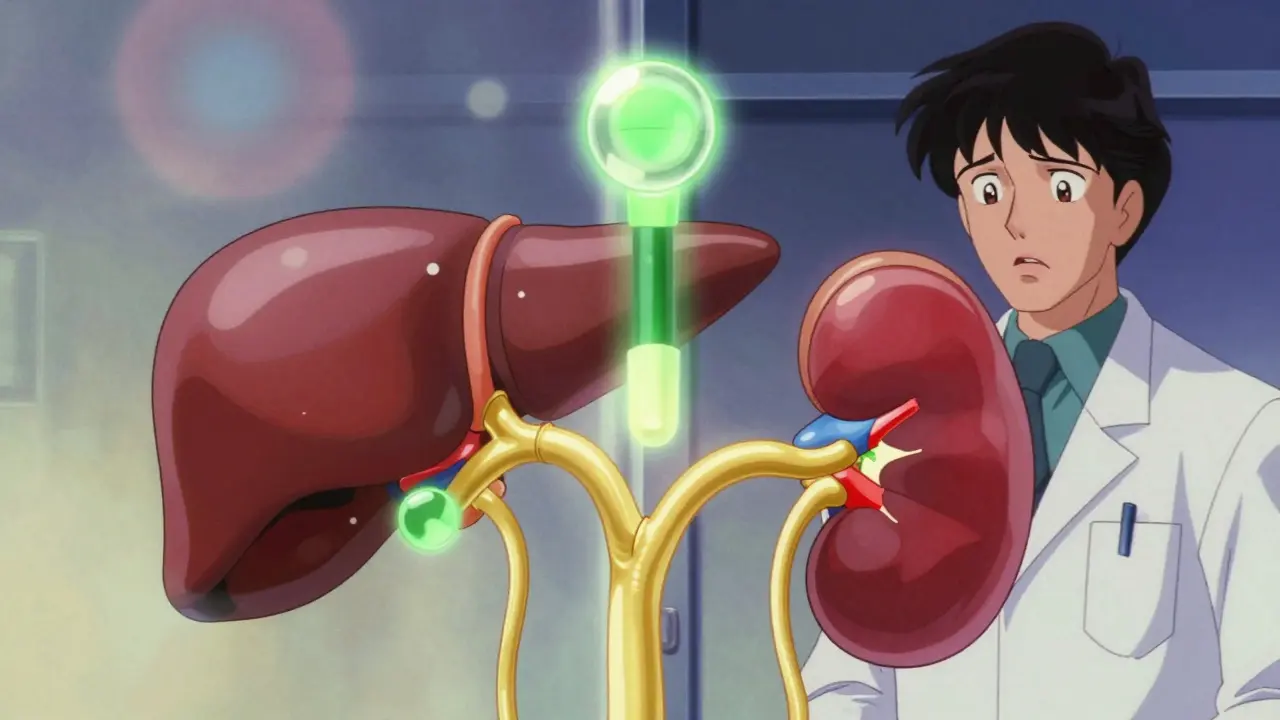VikingPharmacy.com - Your Gateway to Health and Medication - Page 3

GLP-1 Agonists for Weight Loss: Real Benefits and Common Side Effects
GLP-1 agonists like Wegovy and Zepbound offer powerful weight loss-up to 20% of body weight-but come with side effects like nausea and high costs. Learn how they work, who they're for, and what to expect.

Metabolic Syndrome: How Waist Size, Triglycerides, and Glucose Control Are Linked
Metabolic syndrome links belly fat, high triglycerides, and elevated blood sugar - three warning signs that raise your risk of heart disease and diabetes. Learn how to reverse it with lifestyle changes that work.

Physical Therapy for Pain: Exercise, Stretching, and Restoration
Physical therapy for pain uses exercise, stretching, and restoration to reduce chronic pain without drugs. Learn science-backed routines, real results, and how to start safely today.

Price and Efficacy: Why Cheaper Drugs Feel Less Effective
Why do cheaper drugs feel less effective-even when they're identical to brand-name pills? The answer lies in psychology, not chemistry. Price, appearance, and expectation shape how we experience medicine.

IBD Surgery: Understanding Resection, Ostomy, and Postoperative Care
IBD surgery offers life-changing relief for Crohn's and ulcerative colitis when meds fail. Learn about resection, J-pouch, ostomy, recovery, and what to expect after surgery.

Migraine Disorder: Effective Preventive Strategies and Acute Treatment Options
Migraine is a neurological disorder requiring both acute treatment and long-term prevention. Learn about effective options like CGRP inhibitors, triptans, neuromodulation devices, and lifestyle strategies backed by current research and real patient outcomes.

Blood Thinners and NSAIDs: Why This Combination Can Cause Life-Threatening Bleeding
Combining blood thinners with NSAIDs like ibuprofen or naproxen can cause severe, life-threatening bleeding. Learn why this interaction is so dangerous, which drugs carry the highest risk, and what safer alternatives actually work.

Pitavastatin and Diabetes Risk: What You Need to Know About Metabolic Effects
Pitavastatin offers a favorable metabolic profile compared to other statins, with minimal impact on blood sugar and lower risk of new-onset diabetes. Ideal for patients with prediabetes or metabolic syndrome.

DOAC Interactions with Other Medications: What You Need to Know
DOACs like apixaban and rivaroxaban are safer than warfarin, but drug interactions can still cause serious bleeding or clots. Learn which medications to avoid and how to stay safe.

International Pharmacovigilance: How Global Safety Monitoring Is Being Harmonized
Global pharmacovigilance harmonization is improving drug safety by standardizing adverse event reporting across countries. Learn how ICH guidelines, AI, and regional differences shape the future of global drug monitoring.